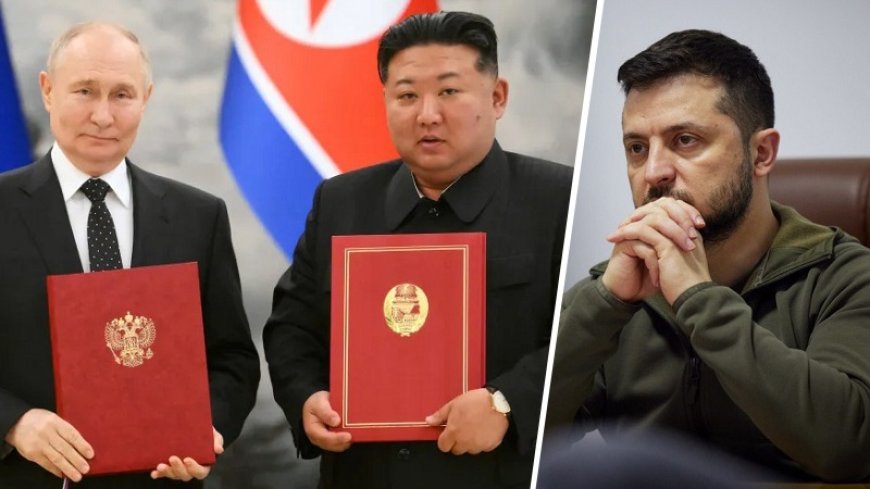International Developments in the Ukraine-Russia Conflict: North Korean Concerns, NATO's Stance, and More

As the conflict between Ukraine and Russia rages into its grueling eighth month, international developments and diplomatic maneuvers are shaping the course of the war and its broader implications. Finland's Defense Minister, Antti Häkkänen, confirmed Finland's role in training Ukrainian military forces on Finnish soil. This initiative, part of a multinational effort involving ten other countries, aims to bolster Ukraine's defense capabilities amid ongoing hostilities. The program has already imparted essential skills to over 26,500 Ukrainian troops, with plans to train more by year's end, according to Sputnik news agency.
In a press briefing, the U.S. Department of Defense (Pentagon) addressed concerns over potential North Korean involvement in the conflict. While no concrete evidence of North Korean troops entering Ukraine was presented, Pentagon representative Pat Ryder emphasized the need for vigilance. "It's something we're monitoring closely," Ryder stated, highlighting the geopolitical sensitivities surrounding the war's escalation.
Hungary's Call for Peace
Following discussions with French President Emmanuel Macron, Hungarian Prime Minister Viktor Orban reiterated Hungary's stance against further escalation of the conflict. "Hungary is not aligned with any party in this conflict but advocates for peace," Orban declared, underlining Hungary's commitment to diplomatic resolutions over military engagements.
Russian Military Operations Update
The Russian Ministry of Defense reported significant developments in its military operations within Ukraine. In the southern front, Russian forces claimed tactical advancements, resulting in casualties and equipment losses among Ukrainian troops. Similar clashes were reported in northern and western fronts, where Russian units claimed territorial gains and repelled Ukrainian counterattacks.
Trump Administration's Proposed Peace Plan
In an exclusive report, Reuters detailed a peace proposal presented to former U.S. President Donald Trump by his advisors Keith Kellogg and Fred Fleitz. The plan conditions continued American military support to Ukraine on the commencement of peace negotiations with Russia. It also warns of increased U.S. backing in case negotiations fail, signaling a potential shift in Washington's strategy towards the conflict.
Putin's Diplomatic Initiative
Russian President Vladimir Putin, addressing the Primakov Readings international conference in Moscow, called for global consideration of Russia's proposed peace initiative for Ukraine. Expressing disappointment with Western reluctance towards Russian proposals, Putin urged diplomatic and political dialogue to end the crisis, highlighting Russia's readiness to engage constructively.
EU Funds for Ukrainian Military Aid
European Union's Foreign Policy Chief Josep Borrell announced the approval of €1.4 billion ($1.5 billion) in frozen Russian assets for military aid to Ukraine. The decision follows EU-wide sanctions freezing over $300 billion in Russian assets, underscoring EU's support for Ukraine's defense amid ongoing hostilities.
NATO's Varied Commitments
While NATO Secretary General Jens Stoltenberg reaffirmed the coalition's commitment to support Ukraine, Bloomberg reported varying levels of commitment among NATO allies. Some member states expressed hesitancy in providing long-term military support, citing uncertainties on the battlefield and Kyiv's evolving needs. This cautious approach reflects the complex geopolitical dynamics influencing NATO's collective response to the conflict.
British Concerns over French Troop Deployment
Amidst discussions about potential European troop deployments to Ukraine, British Foreign Secretary David Cameron voiced concerns over heightened tensions. Cameron emphasized the need for coordinated efforts that avoid escalating the conflict further, urging dialogue and strategic restraint among European partners.
As the conflict continues to evolve, international actors are navigating delicate diplomatic waters to mitigate humanitarian impacts and pave the way for a peaceful resolution to one of Europe's most pressing crises.













































